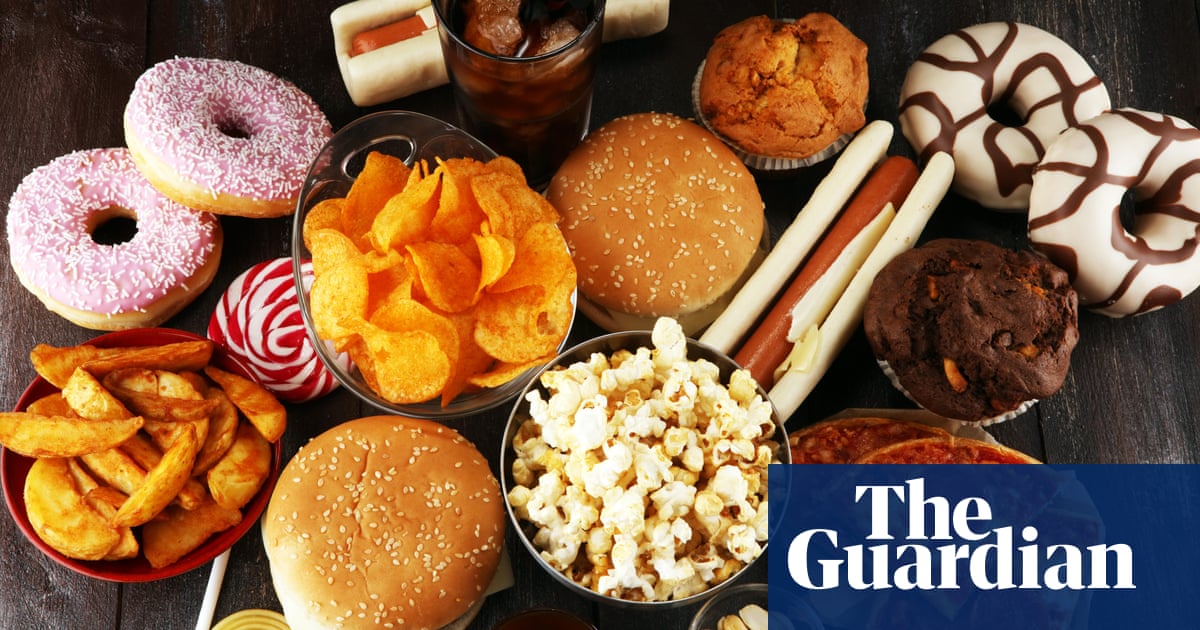Consuming large amounts of ultra-processed food (UPF) increases the risk of an early death, according to a international study that has reignited calls for a crackdown on UPF.
Each 10% extra intake of UPF, such as bread, cakes and ready meals, increases someone’s risk of dying before they reach 75 by 3%, according to research in countries including the US and England.
UPF is so damaging to health that it is implicated in as many as one in seven of all premature deaths that occur in some countries, according to a paper in the American Journal of Preventive Medicine.
They are associated with 124,107 early deaths in the US a year and 17,781 deaths every year in England, the review of dietary and mortality data from eight countries found.
Eduardo Augusto Fernandes Nilson, the lead investigator of the study, from the Oswaldo Cruz Foundation in Brazil, said that additives such as sweeteners and flavourings harm health not just UPFs’ high levels of fat, salt and sugar.
The authors found “a linear dose-response association between the ultraprocessed food consumption and all-cause mortality” when they examined official surveys previously undertaken in the UK and US, as well as Australia, Brazil, Canada, Colombia, Chile and Mexico.
While 4%, 5% and 6% of premature deaths in Colombia, Brazil and Chile respectively are “attributable to UPF consumption”, the equivalent percentage is 10.9% in Canada, 13.7% in the US and 13.8% in England – the highest proportion among the eight countries.
“Premature deaths attributable to consumptions of ultraprocessed foods increase significantly according to their share in individuals’ total energy intake. A high amount of UPF intake can significantly affect health,” the researchers concluded.
Death rates are highest in the countries where the population gets the largest amounts of total energy from eating UPF.
In England that is 53.4%, according to the National Diet and Nutrition Survey undertaken in 2018-19. But it is even higher in the US – 54.5%.
“We first estimated a linear association between the dietary share of UPFs and all-cause mortality, so that each 10% increase in the participation of UPFs in the diet increases the risk of death from all causes by 3%,” said Nilson.
“UPFs affect health beyond the individual impact of high content of critical nutrients – sodium, trans fats and sugar – because of the changes in the foods during industrial processing and the use of artificial ingredients, including colourants, artificial flavours and sweeteners, emulsifiers and many other additives and processing aids, so assessing deaths from all causes associated with UPF consumption allows an overall estimate of the effect of industrial food processing on health.”
While the burden of ill-health from UPF is highest in high-income countries, it is growing in low- and middle-income nations, added Nilson.
The authors urged governments worldwide to introduce bold measures to tackle UPF, including tighter regulation of food marketing and the sale of food in schools and workplaces, and also taxes on UPF products to reduce sales.
The findings add to the growing body of evidence linking UPF to a higher risk of both specific illnesses, such as cancer and heart disease, and a increased risk overall of dying before 75. However, they found an association between UPF and early death, not that one definitely causes the other.
For example,US researchpublished last year in the BMJ found that people who consume the most UPF have a 4% higher risk of death overall and a 9% greater risk of dying from something other than cancer or heart disease. It identified processed meat, sugar and ultra-processed breakfast foods, such as cereals, as the unhealthiest UPF products.
A Department ofHealthand Social Care spokesperson said: “We have already taken action to end the targeting of junk food adverts to children, across TV and online, and we have handed local authorities stronger powers to block applications for new takeaways near schools.
“We are also commissioning research to improve the evidence on the health impacts of ultra-processed foods. Through our Plan for Change, we will shift the focus from sickness to prevention, reducing the burden of obesity on public services and the NHS.”
